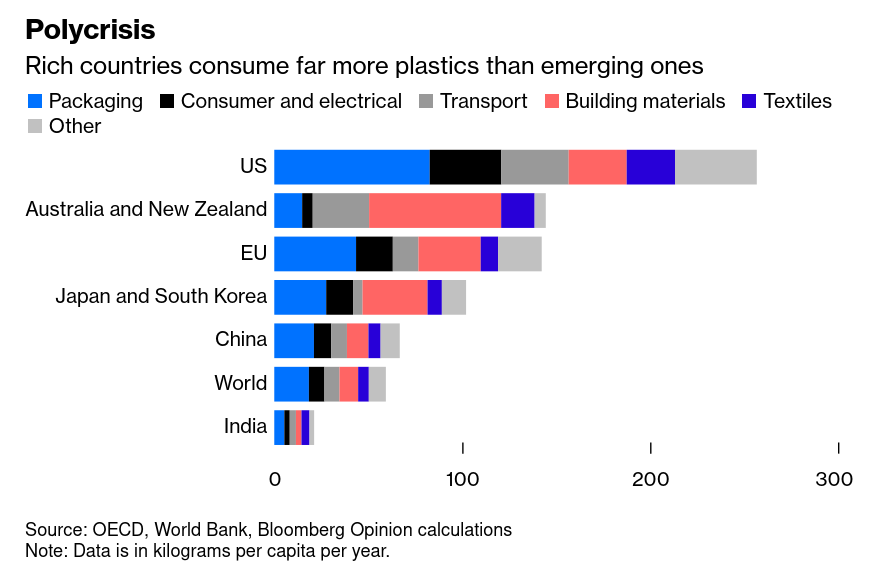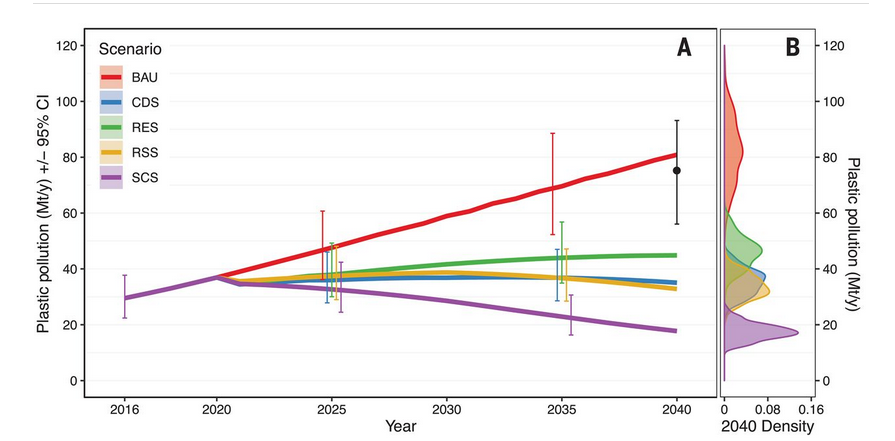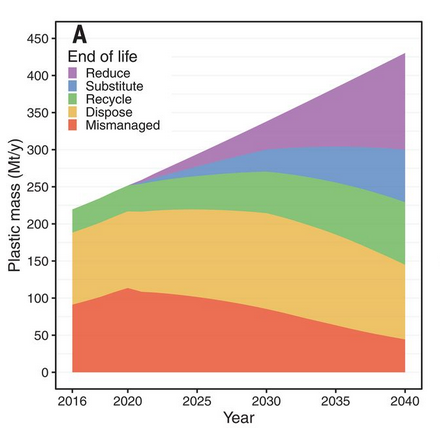September 24, 2024
Plastics production and oil companies
Exxon Mobile is being sued in California for breaking several laws when it comes to its claims of plastics recycling.
The (now open) dirty secret is that oil companies told us lies that we wanted to hear when it comes to plastic: that we would recycle it.
Governments are going after companies for greenwashing in many jurisdictions. Exxon is of course a big evil, but there are many others. Including many national governments themselves.
Only 9% of plastic is ever recycled and 12% is incinerated (adding to emissions). The rest basically ends up in the environment.
The thing is that we cannot cut our plastics dependency any easier than we can cut oil and gas dependencies. It would take finding alternatives and then building the infrastructure to make it.
Finding alternatives is necessary. Plastics production is tied directly to oil and gas production. In many cases it can be thought of as a byproduct of oil and gas extraction: we have to do something with the products that come out of refining and it is not as easy as putting it "back in the ground".
If we want to reduce oil and gas extraction (by reducing use), then we have to reduce plastics use because there will be less plastics produced.
What is the size of this problem? According to a recent paper in Science Mag:
Implementing all feasible interventions reduced plastic pollution by 40% from 2016 rates and 78% relative to “business as usual” in 2040. Even with immediate and concerted action, 710 million metric tons of plastic waste cumulatively entered aquatic and terrestrial ecosystems.
And, of course, rich countries use way more plastic than anyone else.

If you have ever visited the US (or Canadian suburbs), it is pretty clear that they are so awash in the stuff that you wonder if things are made of anything else.
As with climate change, the path to even "net zero" is an impossible journey.


So, what to do?
Alternatives to oil and gas derived plastics do exist. But, they are currently expensive and just as toxic to produce. Materials science is an evolving field and involves doing interesting things with bioplastics from the forestry sector. All have downsides, but fewer downsides than the lock-in of the oil and gas plastics production.
The purpose of outlining this is expand out the impacts of reducing the oil and gas demand/supply. Trying to rely on the market it not working as hoped for by liberal policy makers who do not seem to understand how intervention works.
The only real difference between those countries above is regulation. What happens to the plastic through its life cycle. But, as more countries follow the USA's path to "prosperity" through oil and gas, they also all follow the path to being plowed-under by plastic.
South Korea has outlined that it wants to be plastic free by 2050, but it wants to do this through recycling, which we know will not work. They, like many country governments, have instead focused on banning/reducing so-called single-use plastics. While on the face it, it is not ridiculous to attempt to reduce the production of microplastics this way, it is going to do little to reduce total plastics production unfortunately.
These regulations are completely dependent on market forces finding alternatives. The alternatives found by the market are just different plastics.
Just like with oil and gas production, to shift plastics production and demand, we need to actually produce a market for bioplastics and reusablee silicon. And, at the same time, the investments are needed to be made into collection and reuse of organic waste products (that are also thrown out right now) to feed this production so that it doesn't cannibalize food production.
To sound like a broken record: the only way this is going to happen is a comprehensive industrial strategy that incorporates the full life cycle of oil, gas, and chemical production.
There is no easy answers to this problem, but it is one that we must solve. Especially since evidence continues to point to plastic waste not being so benign.